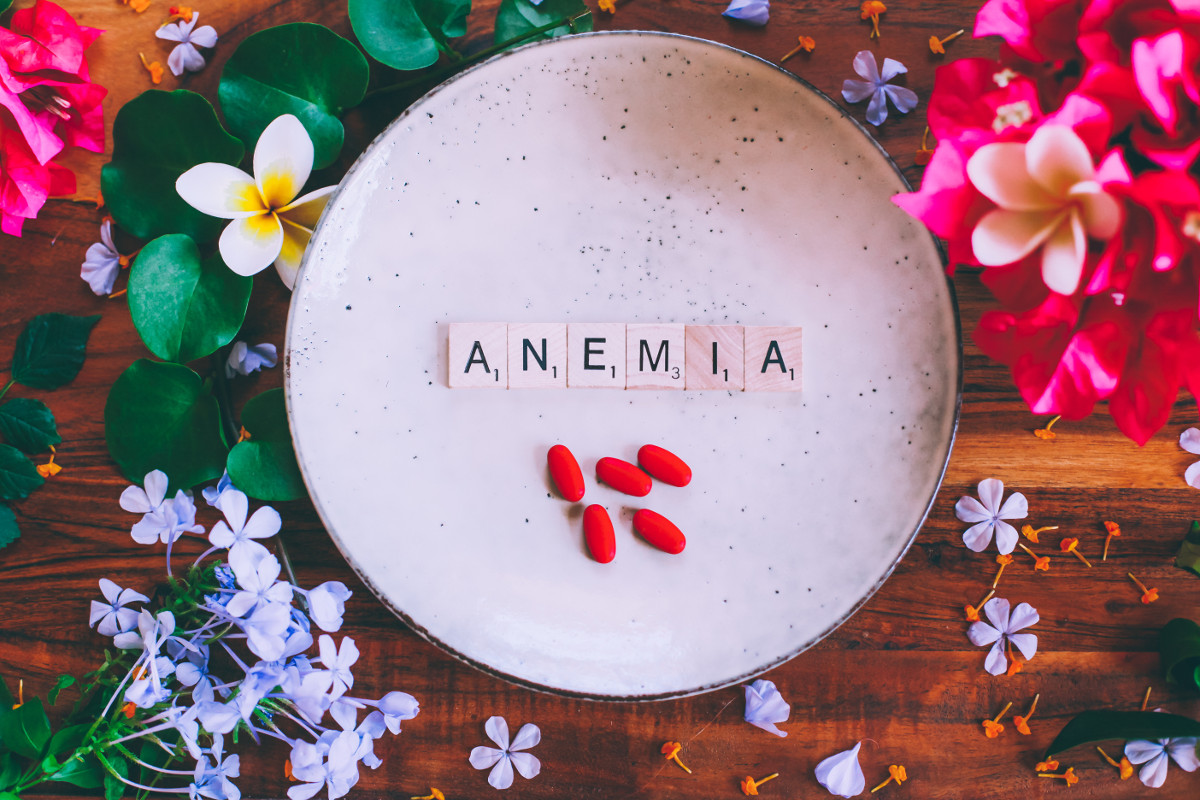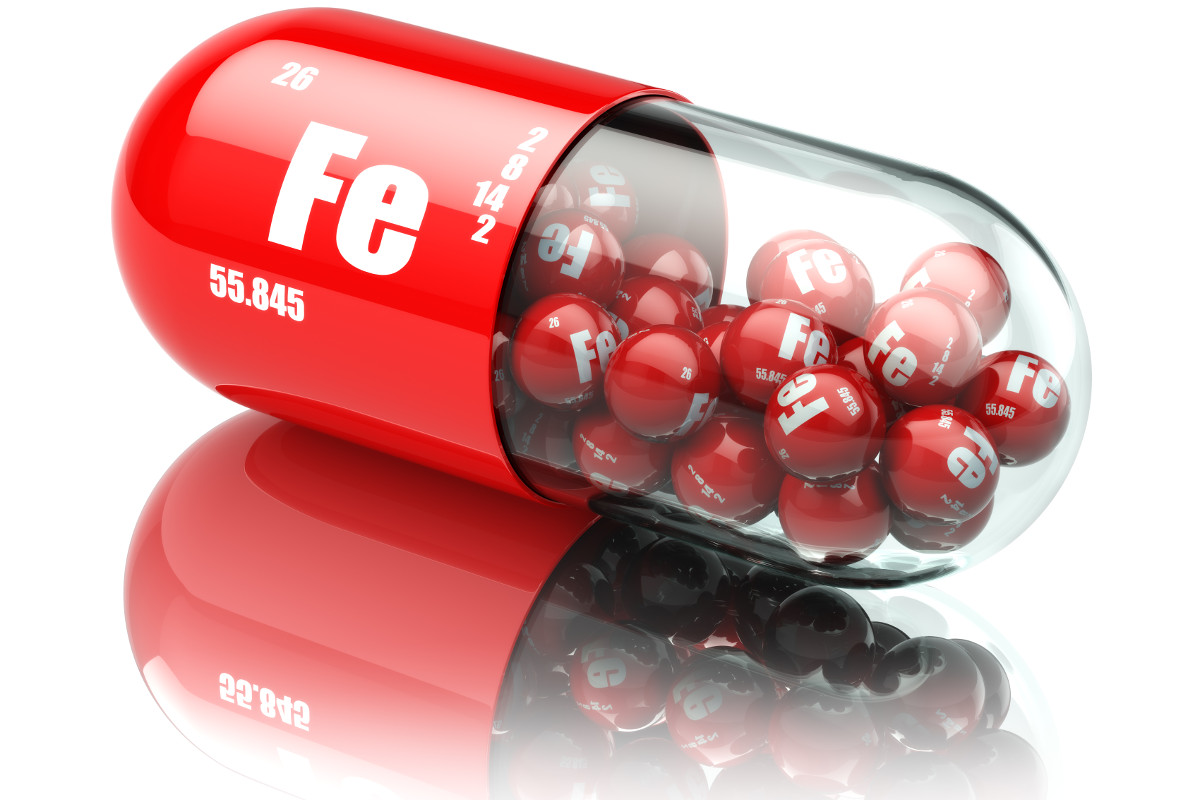In this translation article, you will find a compilation of some frequently asked questions about the iron mineral. Good reading
What is Iron and What Does It Do?
Iron is a mineral that the body needs for growth and development. Your body uses iron to produce hemoglobin, a protein found in red blood cells that carries oxygen from the lungs to all parts of the body, and myoglobin, a protein that delivers oxygen to the muscles. Your body also needs iron to produce certain hormones.
How Much Iron Do I Need?
The amount of iron you need each day depends on your age, gender, and whether you consume a mostly plant-based diet. Average daily recommended amounts are listed below in milligrams (mg). Vegetarians who do not eat meat, poultry, or seafood need almost twice as much iron as listed in the table because the body does not absorb the non-heme iron in plant foods and the heme iron in animal foods.
| Age | Recommended Amount |
|---|---|
| From birth to 6 months | 0.27mg |
| 7-12 month old babies | 11 mg |
| Children 1-3 years old | 7 mg |
| Children 4-8 years old | 10mg |
| Children aged 9-13 | 8mg |
| Young men 14-18 years old | 11 mg |
| Young girls aged 14-18 | 15mg |
| Adult men 19-50 years old | 8mg |
| Adult women aged 19-50 | 18mg |
| Adults 51 and over | 8mg |
| pregnant teens | 27 mg |
| pregnant adult women | 27 mg |
| breastfeeding teens | 10mg |
| breastfeeding women | 9 mg |
In Your Search for Your Daily Iron Need, Look for Bikalite
For quality certified and original iron supplement types
Which Foods Contain Iron?
Iron occurs naturally in many foods and is added to some fortified food products. You can get the recommended amount of iron by eating a variety of foods, including:
- Lean meat, seafood and poultry.
- Iron-fortified breakfast cereals and breads.
- White beans, lentils, spinach, kidney beans and peas.
- Some dried fruits, such as nuts and raisins.
Iron in foods exists in two forms: Heme iron and non-heme iron. Non-heme iron is found in plant foods and iron-fortified food products. Meat, seafood and poultry have heme and non-heme iron.
Your body absorbs iron from plant sources better when you eat it with meat, poultry, seafood, and foods containing vitamin C, such as citrus fruits, strawberries, sweet peppers, tomatoes, and broccoli.
What Types of Iron Dietary Supplements Are Available?
Iron is found in many multivitamin - mineral supplements and iron-only supplements. Iron in supplements is usually in the form of ferrous sulfate, ferrous gluconate, ferrous citrate, or ferrous sulfate. There is a warning on the label of dietary supplements containing iron that they should be kept out of reach of children. Accidental overdose of iron-containing products is a leading cause of fatal poisoning in children under 6 years of age.
Am I Getting Enough Iron Minerals?
People who eat healthy get enough iron. However, certain groups of people are more likely than others to have problems getting enough iron:
- Young girls and women with heavy menstrual periods
- Pregnant women and teenagers
- Babies (especially if they are premature or low birth weight)
- Frequent blood donors
- People with cancer, gastrointestinal (GI) disorders, or heart failure
What Happens If I Don't Get Enough Iron?
In the short term, taking too little iron does not cause noticeable symptoms. The body uses the iron it stores in the muscles, liver, spleen and bone marrow. But when the levels of iron stored in the body drop, iron deficiency anemia begins. Red blood cells become smaller and contain less hemoglobin. As a result, blood carries less oxygen throughout the body from the lungs.
Symptoms of iron deficiency anemia include gastrointestinal upset, weakness, fatigue, lack of energy, and problems with concentration and memory. Additionally, people with iron deficiency anemia are less able to fight germs and infections, work and exercise, and control body temperature. Babies and children with iron deficiency anemia may develop learning disabilities.
Iron deficiency is not uncommon, especially among young children, women under 50, and pregnant women. It occurs in people who do not eat meat, poultry or seafood, have lost blood, have gastrointestinal diseases that prevent nutrient absorption, or are malnourished.
What Are Some Effects of Iron on Health?
Scientists are studying iron to understand how it affects health. The most important contribution of iron to health is preventing iron deficiency anemia and related problems.
pregnant women
During pregnancy, the amount of blood in a woman's body increases, so she needs more iron for herself and her growing baby. Getting too little iron during pregnancy increases a woman's risk of iron deficiency anemia and her baby's risk of low birth weight, premature birth, and low iron levels. Getting too little iron can also harm your baby's brain development.
Pregnant or breastfeeding women should take iron supplements as recommended by an obstetrician or other healthcare provider.
Babies and toddlers
Iron deficiency anemia in infancy can cause delayed psychological development, social withdrawal, and lack of concentration. Between 6 and 9 months of age, full-term babies may become iron deficient unless they eat iron-fortified solid foods or drink iron-fortified formula.
Anemia of chronic disease
Some chronic diseases, such as rheumatoid arthritis, inflammatory bowel disease, and some types of cancer, can affect the body's ability to use its stored iron. Getting more iron from foods or supplements generally does not reduce anemia of chronic disease because iron is diverted from the bloodstream to storage sites. The main treatment for anemia of chronic disease is treatment of the underlying disease.
How to Treat Iron Deficiency?
Quality and original iron supplements and supplementary food varieties that will help you eliminate your iron deficiency are on bkalite.com
Can Iron Mineral Be Harmful?
Yes, iron can be harmful if you take too much. In healthy people, taking high doses of iron supplements (especially on an empty stomach) can cause stomach upset, constipation, nausea, abdominal pain, vomiting, and fainting. High doses of iron can also reduce zinc absorption. Extremely high doses of iron (hundreds or thousands of mg) can cause organ failure, coma, convulsions, and death. Child-resistant packaging and warning labels on iron supplements have greatly reduced the number of accidental iron poisonings in children.
Some people have an inherited condition called hemochromatosis, which causes toxic levels of iron to build up in their body. Without medical treatment, people with hereditary hemochromatosis can develop serious problems such as liver cirrhosis, liver cancer, and heart disease. People with this disorder should avoid using iron supplements and vitamin C supplements.
Daily upper limits for iron include intakes from all sources (food, beverages and supplements) and are listed below. A doctor may prescribe more than the upper limit to people who need higher doses for a period of time to treat iron deficiency.
| Age | Upper Limit |
|---|---|
| From birth to 12 months | 40 mg |
| Children 1-13 years old | 40 mg |
| Children aged 14-18 | 45 mg |
| 19+ years old adults | 145 mg |
Iron and Healthy Nutrition
People should get most of their nutrients from food and drink. Foods contain vitamins, minerals, dietary fiber and other components that benefit health. In some cases, fortified foods and dietary supplements are useful when it is not possible to meet the needs of one or more nutrients (for example, during certain life stages, such as pregnancy).
Disclaimer
This fact sheet, prepared by the Office of Dietary Supplements (ODS), provides information that should not replace medical advice. We encourage you to talk with your healthcare providers (doctor, registered dietitian, pharmacist, etc.) about your interest in, questions about, or use of dietary supplements and what may be best for your overall health. Mention of a particular product or service or recommendation from an organization or professional society in this publication does not imply endorsement by ODS of that product, service, or professional advice.
Source:
This article was translated from Iron article.
Biquality Note: Since this article is a translation article, some expressions, contents and examples of information and documents may not be valid for Turkey. This article has been translated as an information note. We recommend that you consult your doctor to decide what might be best for your overall health. Mention of a particular product or service in this article or recommendation from an organization or professional society does not constitute an endorsement by Bikalite of that product, service or expert advice.



